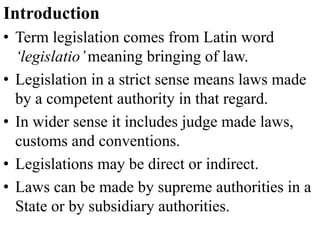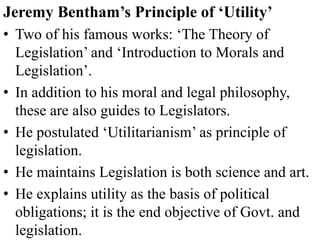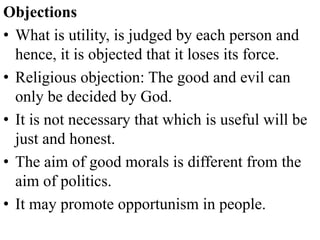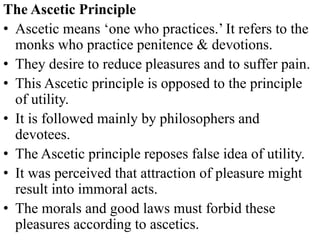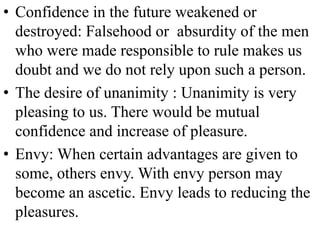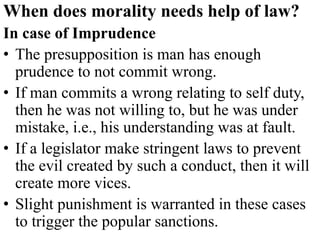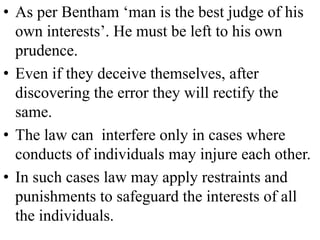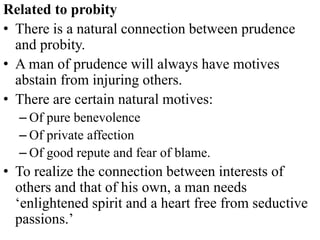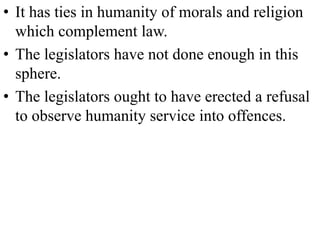The document discusses Jeremy Bentham's principle of utility as the basis for legislation, which holds that legislation should aim to maximize happiness and minimize pain for the community. It also examines Bentham's views on how the principles of utility, asceticism, and sympathy/antipathy influence legislation and compares the roles of morality versus law. The document provides guidance for legislators in applying the principle of utility when drafting laws.

